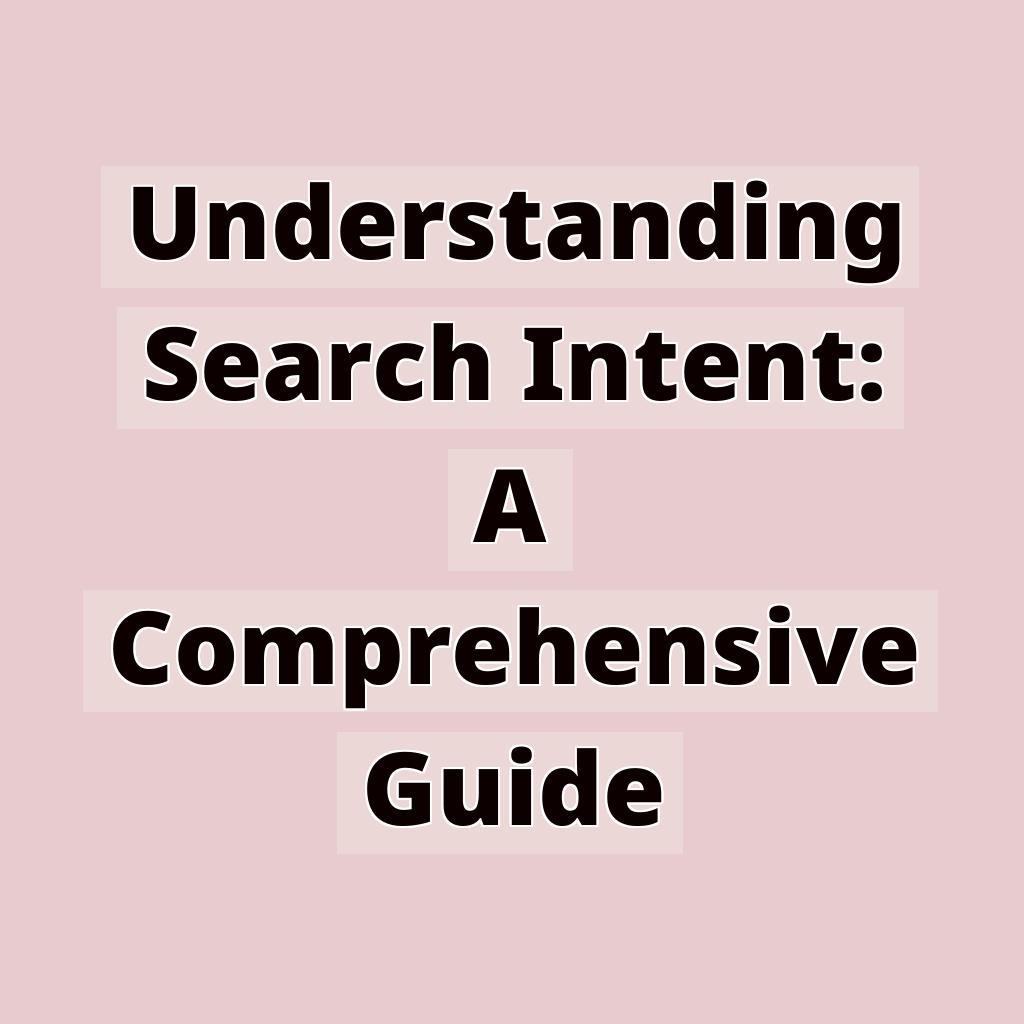As someone who’s deeply involved in digital marketing, I’ve come to understand the critical importance of search intent in driving online success. Understanding the intent behind a user’s search query is crucial for creating content that resonates with the audience and drives valuable traffic. In this comprehensive guide, I’ll delve into the concept of search intent, its significance, and practical strategies for optimizing content to align with different search intents.
What is Search Intent?
Search intent, also known as user intent, refers to the reason behind a user’s specific search query on a search engine. It’s the underlying motivation or purpose that drives a person to type a particular set of keywords into a search bar. Search engines strive to deliver the most relevant results based on the user’s intent, which can broadly be categorized into four primary types:
- Informational Intent: Users are seeking information or answers to their questions. Example: “How to tie a tie.”
- Navigational Intent: Users aim to navigate to a specific website or web page. Example: “Facebook login.”
- Commercial Investigation Intent: Users are researching a product or service with the intent to possibly make a purchase in the future. Example: “Best smartphones 2024.”
- Transactional Intent: Users are ready to make a purchase or take a specific action. Example: “Buy iPhone 13 Pro Max.”
Significance of Understanding Search Intent
Understanding search intent is fundamental for several reasons:
-
Relevance: By aligning content with search intent, you ensure that your content meets the user’s needs, leading to higher engagement and lower bounce rates.
-
SEO Performance: Search engines favor content that satisfies user intent, leading to better rankings and visibility.
-
Audience Targeting: Tailoring content to different search intents allows you to target specific segments of your audience more effectively.
-
Conversion Optimization: Matching content to transactional intent can directly impact conversion rates and drive revenue.
Strategies for Optimizing Content for Search Intent
To effectively optimize content for search intent, consider the following strategies:
-
Keyword Research: Use keyword research tools to identify keywords that align with different search intents. For informational intent, focus on “how to,” “what is,” and similar phrases. For transactional intent, target keywords like “buy,” “discount,” or “deal.”
-
Content Type: Tailor the content format to match the search intent. For informational queries, create in-depth guides, how-to articles, or infographics. For transactional queries, focus on product pages, reviews, and comparison articles.
-
User Experience: Ensure that your content provides a seamless user experience, with clear calls-to-action for transactional intent and comprehensive information for informational intent.
-
Optimize Meta Tags: Craft compelling meta titles and descriptions that clearly indicate the relevance of your content to the user’s search intent.
-
Evaluate SERP Features: Analyze the search engine results page (SERP) for your target keywords to understand what type of content currently satisfies user intent, and strive to create something even better.
The Bottom Line
Understanding search intent is not just about optimizing for search engines; it’s about enhancing the overall user experience and delivering value to your audience. By aligning your content with the diverse intents of your target users, you can build credibility, drive engagement, and ultimately achieve your digital marketing goals. Embracing search intent as a guiding principle in your content strategy will undoubtedly set you on the path to sustainable online success.
